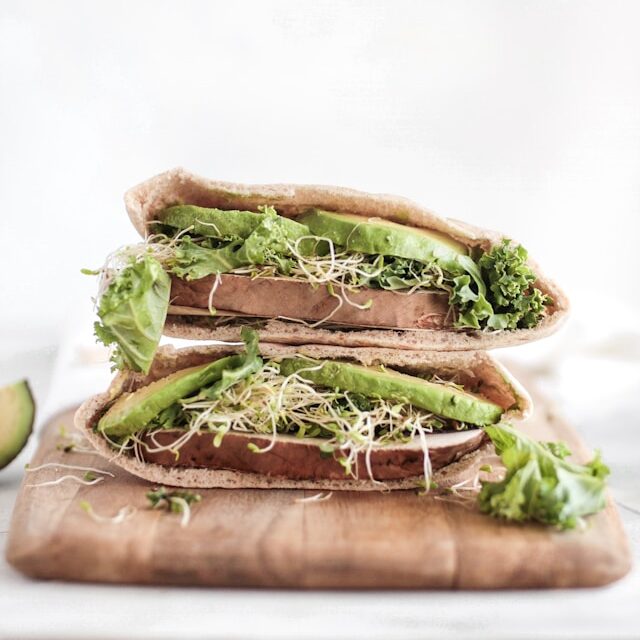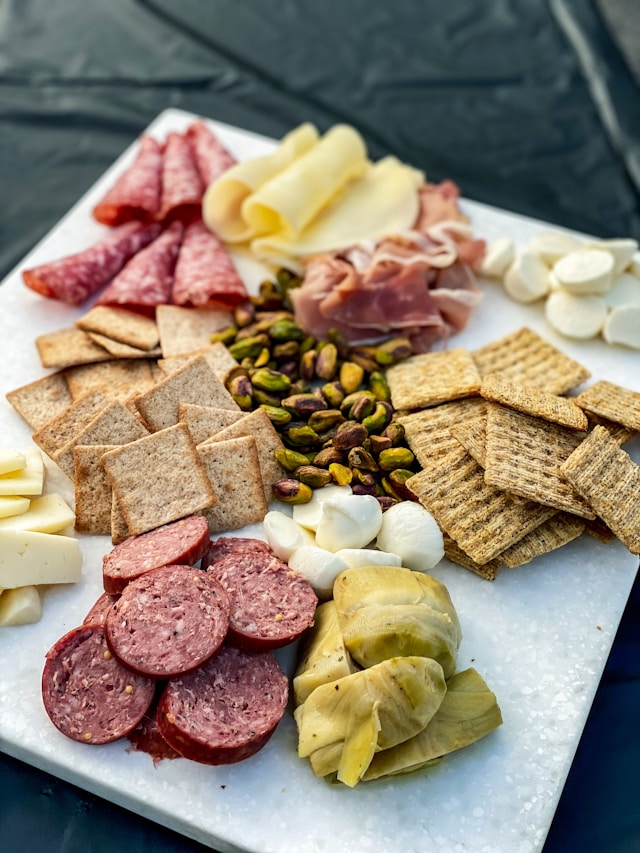Unveiling the Link Between Processed Meats and Colorectal Cancer
Hello friends,
Before you throw your ham or bologna sandwich in your lunchbox, you may want to reconsider the contents of your meal. Recent findings from the global research community indicate that regular consumption of processed meats can significantly impact our risk of developing colorectal cancer.
The Alarming Discovery
A comprehensive analysis conducted by the AICR/WCRF (American Institute for Cancer Research/World Cancer Research Fund) has shed light on the potential dangers lurking in our diets. Their report reveals that consuming even small amounts of cold cuts or other processed meats regularly can elevate the risk of colorectal cancer. Additionally, indulging in high quantities of red meat, exceeding 18 ounces per week, has also been linked to an increased risk of this form of cancer.
The findings don’t stop there. Processed meat, in addition to its connection to colorectal cancer, may also elevate the risk of heart disease, adding another layer of concern to this dietary dilemma.
What Classifies as Processed Meat?
Processed meat is any meat (including fish) preserved by using smoking, curing, fermentation, salting, and/or the use of chemical preservatives.
Processed meats include a variety of familiar favorites:
- Sausage
- Bacon
- Turkey bacon
- Deli meats (even deli chicken or turkey)
- Hot dogs
- Smoked fish (lox)
- Ham
- Beef Jerkey
- Pancetta
- Pastrami
- Pepperoni
- Salami
- Corned beef
Foods that are not considered processed meats include canned fish or chicken, rotisserie chicken, raw turkey, raw chicken, raw beef. A good rule of thumb when deciding if a meat is considered processed or not is to check if it is preserved with salting, curing, smoking, or fermenting and checking whether or not it has a long shelf life (multiple weeks). If something has a shelf life of a few days, chances are it is not a processed meat.
How Much Processed Meat Is Safe to Eat?
The research suggests that regularly including even small amounts of cold cuts, bacon, sausage, and hot dogs in your diet can elevate the risk of colorectal cancer. Consequently, the AICR recommends avoiding these processed meats in your regular diet, except for special occasions. The risk escalates as processed meat consumption increases, with studies revealing that consuming 3.5 ounces daily, equivalent to a large hot dog or 2-3 slices of luncheon meat, can increase colorectal cancer risk by a substantial 36%.
Why Does Processed Meat Increase Cancer Risk?
While the link between processed meat and cancer risk is established, the precise mechanisms behind this connection are still being explored. Researchers are currently investigating several potential factors, including:
- Nitrates/Nitrites: These compounds are added to processed meats to preserve their color and prevent spoilage. In laboratory studies, these substances have been found to form cancer-causing compounds, known as carcinogens.
- Smoking Process: Smoked meats contain Polycyclic Aromatic Hydrocarbons (PAHs), which are formed at high heat and are considered carcinogenic.
- Cooking at High Temperatures: Meats cooked at high temperatures can also produce PAHs and heterocyclic amines (HCAs), both of which can damage DNA.
- Heme Iron: The heme iron found in red meat may have the potential to damage the lining of the colon.
What About Nitrate/Nitrite-Free Processed Meats?
Products labeled as nitrate/nitrite-free are a relatively recent addition to the market. At this point, more research is needed to distinguish between nitrate/nitrite-free processed meats and the typical ones with added nitrates and nitrites. It’s essential to note that even processed meats made from turkey or chicken, while lacking nitrates/nitrites, are still smoked, salted, or cured and should be consumed in moderation.
How to Reduce Overall Risk
When it comes to nutrition and cancer prevention, it’s the daily choices that matter most. While the occasional indulgence in a hot dog at a baseball game or a holiday ham is unlikely to significantly increase your cancer risk, making healthier choices on a regular basis can make a substantial difference. Here are some simple swaps you can make:
- Replace packaged deli meats with fresh chicken or fish.
- Experiment with vegetarian sausages instead of bacon, chorizo, or salami.
- Opt for beans like kidney beans, chickpeas, and lentils as a substitute for sausage in chili and sauces.
- Diversify your sources of protein, incorporating options like eggs, cottage cheese, and hummus.
- Enhance the flavor of your dishes with herbs and spices like garlic, fennel seed, and chili flakes.
Bonus: 24 Deli-Meat-Free Sandwich Ideas (sans Processed Meats)

- Avocado, tomato, and mozzarella on whole-grain bread.
- Hummus and roasted vegetable wrap.
- Grilled salmon with cream cheese and capers on a bagel.
- Grilled Portobello mushrooms with pesto.
- Caprese sandwich with fresh basil and balsamic glaze.
- Roasted turkey and cranberry sauce with spinach.
- Grilled eggplant, roasted red peppers, and goat cheese.
- Tuna salad with avocado and mixed greens.
- Egg salad with dill and cucumber.
- Chickpea salad with tahini dressing
- Peanut butter and banana with honey.
- Greek gyro with tzatziki and cucumber.
- Roast beef with horseradish and arugula.
- Caprese panini with fresh basil and tomato.
- Curried chicken salad with raisins and almonds.
- Roasted vegetable and hummus pita pocket.
- Turkey, avocado, and sprouts on whole-grain bread.
- Grilled zucchini and provolone on ciabatta.
- Quinoa and black bean wrap with salsa.
- Grilled chicken with pesto and sun-dried tomatoes.
- Cucumber, cream cheese, and dill on rye.
- Spinach and feta stuffed pita with olives.
- Sliced apple, cheddar, and honey on sourdough.
- Veggie-loaded avocado toast.
Conclusion
Remember, making these small changes can add up to significant health benefits over time. By choosing a diet that minimizes processed meats and emphasizes whole, nutrient-rich foods, you can take a proactive step in reducing your risk of colorectal cancer and promoting overall well-being. Like all things, it is more about the overall pattern rather than what you do once or on occasion – progress over perfection.
In my 1:1 VIP Coaching Program, I take you from confused to confident and cheer you on as well as equip you with what you need to not just survive, but truly THRIVE during and after cancer treatment. Spots fill up fast, so apply today!
Picture this: you are leaving your oncology appointment and despite the million questions swirling in your mind, you got a handout . . . yay . . . although it has some great information, it doesn’t really scratch the surface when it comes to navigating nutrition during cancer. That’s why I made my self paced Masterclass course: The Power of Nutrition – to boil down the basics so that you can feel confident about nourishing yourself and supporting your health RIGHT NOW during your treatment. Fall in love with food again without consulting Dr. Google before each bite. Consider this your ticket to healing, gaining muscle, immunity AND energy.
This blog is not intended as medical nutrition therapy, medical advice, or diagnosis and should in no way replace consultation or recommendation from your medical professional.




